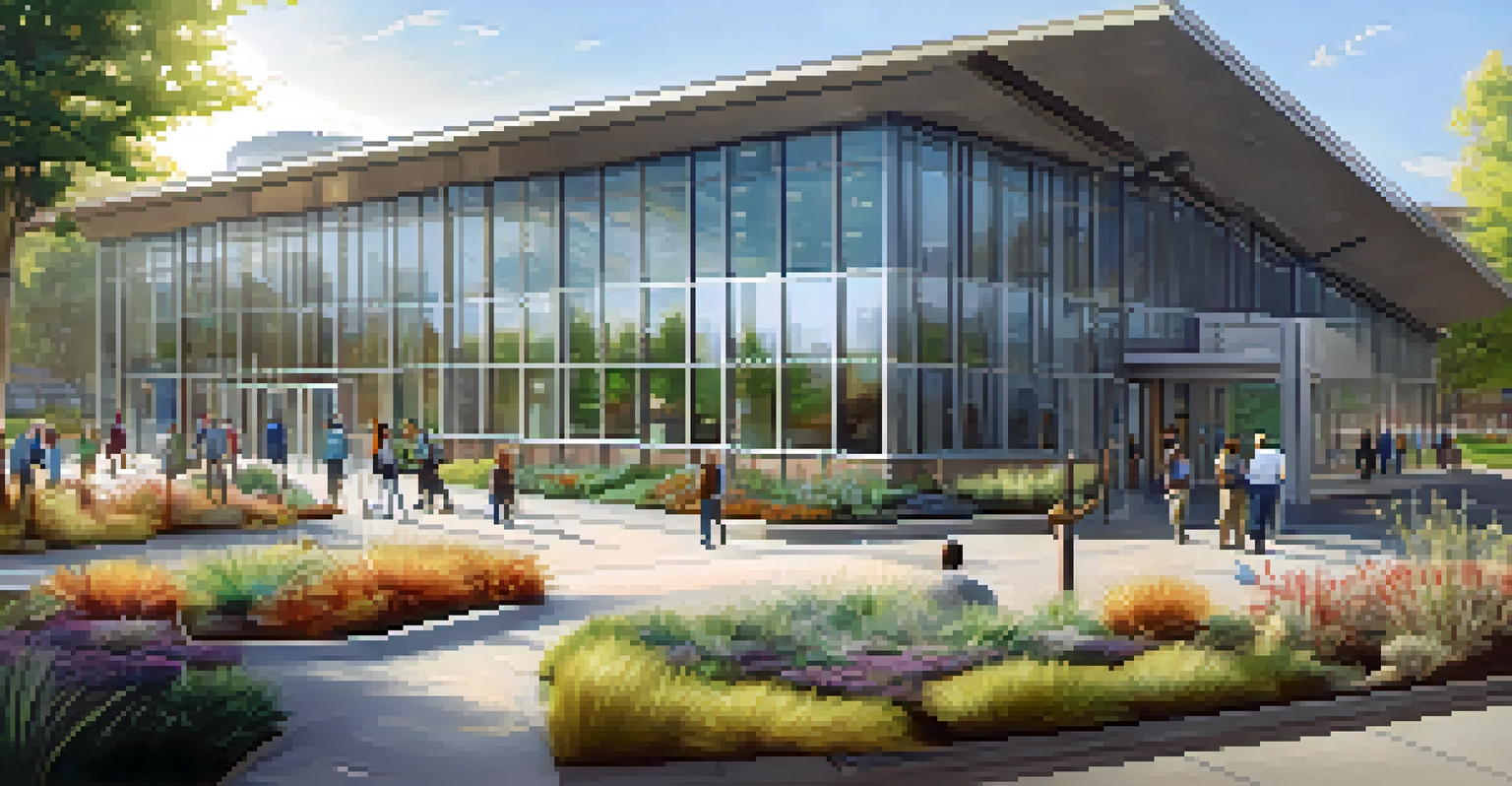The Role of Local Government in North Carolina's Communities

Overview of Local Government Structure in North Carolina
North Carolina's local government is a complex system that includes counties, municipalities, and special districts. Each of these entities has unique responsibilities and powers, contributing to the overall governance of the community. For instance, counties manage larger regions, while municipalities focus on more localized issues. Understanding this structure is crucial for grasping how decisions impact daily life.
The best way to predict the future is to create it.
Counties are tasked with essential functions such as public health, education, and law enforcement. Municipalities, on the other hand, handle zoning, local ordinances, and community services like parks and recreation. Special districts, which might focus on specific services like water supply or public transportation, add another layer of governance. Together, these entities create a tapestry of local governance that reflects the community's needs.
This multi-tiered system allows for tailored solutions to local issues, ensuring that the unique characteristics of each community are addressed. As residents, it’s important to engage with these local governments to understand how they operate and influence our lives.
Key Responsibilities of Local Governments
Local governments in North Carolina have a broad range of responsibilities that directly affect community life. These include maintaining infrastructure like roads and bridges, providing public safety through police and fire services, and managing local education systems. Each of these roles plays a vital part in ensuring a safe and functioning community.

In addition to these essential services, local governments also oversee zoning laws and land use planning. This ensures that communities develop in a way that meets residents' needs while considering environmental impacts. For example, a local council might decide to create more green spaces to enhance community well-being.
Local Government Structure Explained
North Carolina's local government comprises counties, municipalities, and special districts, each with unique roles that shape community governance.
Moreover, local governments have the authority to levy taxes and manage budgets, which directly impacts funding for public services. This financial responsibility means that local leaders must balance the needs of the community with available resources, making their role crucial in shaping our everyday lives.
Community Engagement and Participation
Community engagement is a vital aspect of local government in North Carolina. Residents are encouraged to participate in meetings, town halls, and public forums to voice their opinions and influence decision-making. This interaction fosters a sense of ownership and pride in local governance.
Government's first duty is to protect the people, not run their lives.
Local governments often employ various outreach strategies to engage citizens effectively. For instance, they might use social media platforms, newsletters, or community events to keep residents informed and involved. This two-way communication not only empowers citizens but also helps local leaders understand the needs and concerns of their constituents.
Engagement can lead to more informed and balanced decision-making, as diverse perspectives bring different ideas to the table. When residents actively participate, it creates a more inclusive environment where everyone feels valued and heard.
Economic Development Initiatives
Local governments play a critical role in economic development within North Carolina communities. They are responsible for creating policies that encourage business growth, attract investments, and create jobs. For example, a local government might offer incentives for businesses to move into the area, which can lead to increased employment opportunities.
Additionally, local governments work closely with various stakeholders, including businesses and non-profits, to develop strategies that enhance the local economy. This collaboration can result in community programs that provide workforce training or support for small businesses. Such initiatives not only boost the economy but also improve the overall quality of life for residents.
Community Engagement is Essential
Active participation in local government through meetings and forums fosters a sense of ownership and influences decision-making.
Moreover, local economic development efforts often focus on sustainability and inclusivity. By promoting diverse industries and supporting marginalized communities, local governments can help create a more equitable economic landscape that benefits everyone.
Public Health and Safety Responsibilities
Public health and safety are paramount concerns for local governments in North Carolina. They oversee vital health services, including vaccinations, health education, and emergency response. This ensures that communities are equipped to handle public health crises, like pandemics or natural disasters.
Local governments also play a key role in law enforcement and fire protection. They ensure that police and fire departments are adequately funded and staffed, so they can respond effectively to emergencies. This commitment to public safety helps build trust and security within the community.
Furthermore, local governments often collaborate with state and federal agencies to address health and safety issues comprehensively. This partnership allows for the sharing of resources and expertise, ultimately enhancing the community's resilience and safety.
Education and Local Governance
Education is another significant responsibility of local governments in North Carolina. They work in partnership with school districts to ensure that quality education is accessible to all students. Local leaders often advocate for necessary funding and resources to improve schools and support educators.
Local governments also play a role in shaping educational policies, such as curriculum standards and school safety protocols. By being involved in these decisions, they help create a learning environment that meets the needs of students and their families. This involvement is crucial for fostering a well-rounded education system.
Economic Development Support
Local governments are crucial in promoting economic growth by creating policies that attract businesses and enhance job opportunities.
Additionally, local governments may support educational initiatives outside the traditional classroom setting. This could include community programs that promote literacy, after-school activities, or vocational training, all of which contribute to the overall development of the community.
The Future of Local Government in North Carolina
As North Carolina's communities continue to evolve, so too will the role of local government. Emerging challenges, such as population growth and climate change, will require innovative solutions and adaptive governance. Local leaders must stay informed and responsive to these changes to effectively serve their constituents.
Technology is also reshaping how local governments operate, with many adopting digital tools to improve efficiency and transparency. This shift allows for better communication with residents and more streamlined processes for accessing services. Embracing technology will be key to enhancing community engagement and trust.

Looking ahead, collaboration between local governments and residents will remain essential. By fostering partnerships and encouraging civic participation, communities can work together to create a brighter future that reflects the values and needs of all its members.